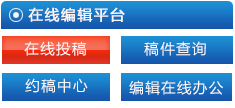调查研究
四君子汤加减联合肠内营养对胃癌术后患者免疫功能的影响
李月红
【摘要】 【摘要】目的 探讨评价四君子汤加减联合肠内营养对胃癌术后患者免疫功能的影响。方法:选择我院2017年11月至2019年2月内收诊的110例胃癌患者作为对象,采用随机数表法按照1∶1比例将其分成对照组和研究组,各组占55例,对照组单纯给予肠内营养治疗,研究组则给予肠内营养+四君子汤加减治疗,观察两组患者术后恢复情况,并比较术前与术后的免疫功能。
【关键字】 四君子汤加减,肠内营养,胃癌,术后,免疫功能
中图分类号:文献标识码:文章编号:
[Abstract] Objective To evaluate the effect of Sijunzi Decoction plus enteral nutrition on immune function in patients with gastric cancer after operation. Methods 110 patients with gastric cancer admitted to our hospital from November 2017 to February 2019 were selected as subjects and randomly divided into control group and research group according to the ratio of 1∶1. Each group accounted for 55 cases. The control group was treated with enteral nutrition alone, while the research group was treated with enteral nutrition plus Sijunzi decoction. The recovery of patients in the two groups was observed and the preoperative and postoperative exemptions were compared. Epidemic function. Results Firstly, the exhaust time and hospitalization time of the study group were shorter than those of the control group, the difference was significant (P<0.05), but there was no significant difference in defecation time between the two groups (P>0.05). Secondly, there was no significant difference in IgG, IgA, CD4+, CD8+, CD4+/CD8+ between the two groups before operation (P>0.05), and the indexes of the two groups increased 10 days after operation. The IgG, IgA, CD4+, CD4+/CD8+ in the study group were higher than those in the control group, with significant difference (P<0.05). Conclusion Sijunzi Decoction combined with enteral nutrition can promote the recovery of patients with gastric cancer and improve the immune function, which is worthy of promotion and reference.
胃癌是床常见恶性肿瘤,发病率高,早期缺乏典型症状,多数病患确诊时已经发展至晚期,多采取手术切除方法治疗。然而,胃是人体重要的消化器官,胃部发生恶性肿瘤直接影响正常进食及消化,甚至引起消化不良[1]。手术切除后,由于应激反应,可能增加机体分解及代谢,导致营养不良程度加重,降低免疫功能,引起并发症,预后欠佳[2]。因此,胃癌术后应该加强营养干预,促进患者早日康复。本文笔者为了探讨观察四君子汤加减联合肠内营养对胃癌术后患者免疫功能的影响,选择2017年11月至2019年2月内收诊的110例患者且分成两组进行研究,取得了满意效果,现在将方法及结果总结报道如下。
1 资料与方法
1.1 一般资料:选择我院2017年11月至2019年2月内收诊的110例胃癌患者作为对象,采用随机数表法按照1∶1比例将其分成对照组和研究组,各组占55例。纳入标准:①所有病例符合《胃癌诊断标准》[3]中关于胃癌的诊断标准;②行胃癌根治术治疗患者;③符合Konsman等[4]制定的关于临床营养不良的诊断标准;④入院前3个月,体质量降低>5%,或者TRF水平<2.0 g/L,或者白蛋白水平<35 g/L;⑤年龄20~70岁,性别不限;⑥自愿参与研究并签署有知情同意书。排除标准:①不愿参与本次研究者;②年龄>70岁,或者年龄<20岁的患者;③合并有心肝肾等严重脏器功能不全患者;④免疫缺陷患者;⑤合并有代谢性疾病或者感染性疾病患者;⑥术中发现存在远端转移,无法行根治术的患者;⑦接受过放化疗治疗的患者;⑧妊娠期或者哺乳期女性;⑨认知障碍、精神障碍患者;⑩失语失聪、无法正常交流的患者。对照组55例患者中包括29例男性和26例女性,最小24岁,最大67岁,平均年龄(42.93±5.48)岁。研究组55例患者中包括31例男性和24例女性,最小23岁,最大69岁,平均年龄(41.27±5.62)岁。数据分析发现,研究组与对照组性别及年龄等基线资料并无明显差异,P>0.05,可分组讨论。










